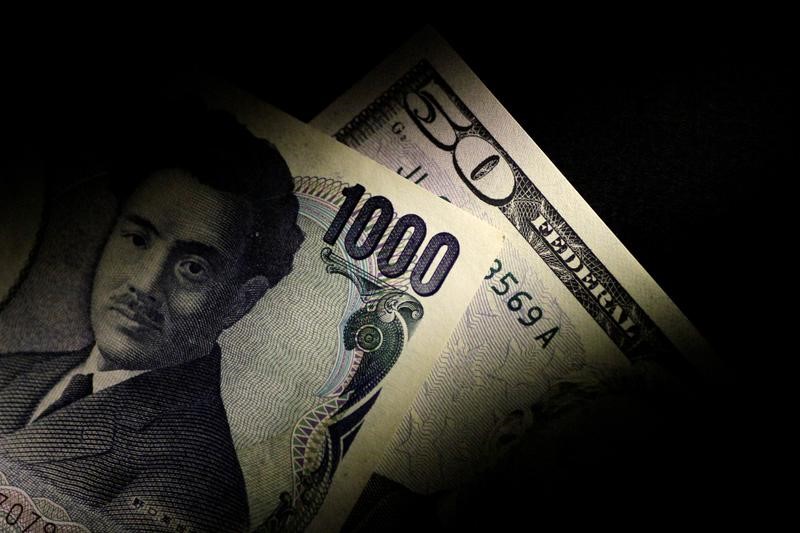Investing.com–Most Asian currencies weakened slightly on Tuesday, adding to recent losses, as traders remained risk averse ahead of a set of key economic data this week.
The Japanese yen was an outlier, firming slightly after falling to a near three-month low in the previous session due to increased political uncertainty in the country. A meeting of the Bank of Japan is also scheduled for this week.
Regional currencies were under pressure from a strong greenback as the dollar hung on to recent gains ahead of a slew of economic data this week that is likely to play a role in expectations for interest rates. Concerns about the upcoming presidential elections also caused traders to favor the dollar.
The Japanese Yen Remains Stable Amid Intervention Threats
The Japanese yen pair fell 0.2% on Tuesday, retreating slightly from its highest level in almost three months after Finance Minister Katsunobu Kato said authorities were monitoring volatility in currency markets.
His comments came after the yen weakened sharply following the results of Sunday’s general election, which saw the ruling LDP-led coalition lose its majority.
The election outcome heralded greater political uncertainty in the country, which could pose problems for the BOJ in further raising interest rates. The central bank is widely expected to do this on Thursday.
This thought had already plagued the yen before Sunday’s elections, with the currency suffering steep losses through October.
Dollar stable with economic data, elections in focus
The and moved little in Asian trading, holding near three-month highs reached in recent sessions.
The dollar rallied sharply in October after a slew of positive economic data fueled expectations that the Fed will cut rates at a slower pace in coming months.
Economic data due this week is expected to provide more clues on this front. Third-quarter data will be released on Thursday, followed by data – the Fed’s favorite inflation gauge – and data – both on Friday.
Dollar positioning also strengthened amid heightened expectations that Donald Trump will defeat Kamala Harris in the upcoming presidential election, with voting taking place on November 5. Trump’s policies are expected to be protectionist and inflationary, strengthening the outlook for the dollar.
Most Asian currencies retreated on this idea, with traders now looking for more economic signals from the region this week.
The Australian dollar pair fell 0.2%, higher than quarterly data due on Wednesday.
The Chinese yuan pair rose 0.2% ahead of October data due on Thursday. The outcome is expected to reflect some of the effects of the series of stimulus measures announced by Beijing over the past month.
The South Korean won pair rose 0.4%, while the Singapore dollar pair rose 0.2%.
The Indian rupee’s pair was flat but remained close to recent record highs.


